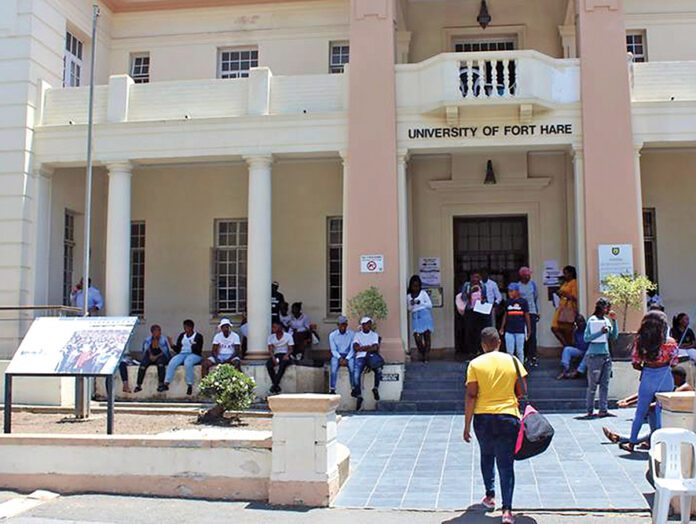The University of Fort Hare has erupted into controversy after the abrupt suspension of its SRC president, Aphelele Khalakahla, a move that has sent shockwaves through student communities nationwide.
The South African Union of Students (SAUS) has condemned the decision in the strongest terms, accusing the university of orchestrating what they call a “draconian” clampdown on student leadership.
“We condemn this attempt to silence student leaders with the contempt it deserves,” declared Siyabonga Moses Nkambako, the president of SAUS, in a statement on Sunday, on the back of a planned mass protest by students, workers, and community members last week.
The timing of Khalakahla’s suspension is raising eyebrows, coming just before a critical university council meeting—one that was expected to tackle “the state of governance at the university”.
Pattern of repression
SAUS alleges that Khalakahla has been targeted specifically for his unwavering advocacy on behalf of students, describing his suspension as “timely orchestrated to prevent him from raising serious issues affecting students and the university at large in terms of governance.”
Students and activists say this is the latest chapter in a wider pattern of repression against those who challenge the status quo on campus.
The union’s statement pulls no punches: “We are dismayed and appalled by this draconian approach against student leaders; universities have a tendency of not appreciating dissenting views, and it is clear here that this is what is happening.”
The drama deepens with claims that the university’s leadership, including the vice-chancellor Sakhela Buhlungu, is out of touch and overdue for departure.
SAUS and the University of Fort Hare student body are now openly demanding the resignation of Buhlungu.
“His term of office has come to an end, and he has reached retirement age. His preoccupation is to ruin futures of students by suspending them, and as the union, we will never side with someone who oppresses black students,” Nkambako asserted.
Student victimisation
The escalating crisis is drawing attention to a wider culture of what SAUS calls “student victimisation” — a charge that has dogged several South African universities in recent years.
“The University of Fort Hare, akin to the culture of student victimisation that many universities have embodied in the face of dissent by student leaders, is once again [targeting] student leaders for standing up firm and rigid on their views,” the union argues.
For many, the suspension of a student leader is more than an internal disciplinary matter — it is a litmus test for the state of free expression and participatory democracy on campus.
“There will never be a time where management and student leaders sing with one voice when it comes to student matters,” SAUS warns, sounding the alarm on what they describe as creeping authoritarianism in university governance.
SAUS has written directly to the Buhlungu, urging him to “reconsider this decision and open dialogue for a more amicable solution to the differences between the university management and students as led by the SRC president, Mr Aphelele Khalakahla”.
SAUS is vowing to “monitor the situation closely and actively engage the vice-chancellor of the university in this matter.”



